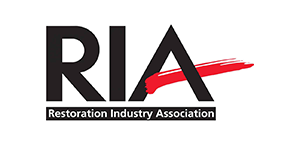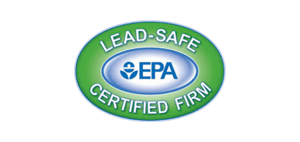Water damage in homes is a common and costly issue that can be prevented with proactive measures. By implementing these expert tips and strategies, you can effectively protect your property and avoid expensive repairs.
Key Takeaways:
- Disconnect hoses and store them indoors during colder months to prevent frozen pipes and potential leaks.
- Regularly clean gutters and downspouts to ensure proper drainage and prevent water from seeping into your home.
- Maintain trees and vegetation around your property, keeping them trimmed and away from the foundation to avoid root damage and excessive moisture near your home.
- Know the location of your water main shutoff valve to quickly stop the water supply in case of an emergency or plumbing issue.
- Maintain appliances such as washing machines, dishwashers, and water heaters to prevent leaks or malfunctions that could lead to water damage.
By following these preventive measures, you can significantly reduce the risk of water damage in your home. It is also recommended to promptly investigate and fix any leaks, install water detection devices, check water pressure regularly, and monitor your water bills for any unexpected increases.
For extra protection, consider installing leak detectors, water flow monitoring systems, and pressure release valves. Secure downspouts to direct water away from your foundation and ensure optimal drainage. Regular maintenance checks for sump pumps and roof inspections are also crucial in preventing water damage.
Lastly, incorporating trees and shrubs in your landscaping can help absorb moisture, and re-grading for improved drainage can further enhance your home’s resistance to water damage.
Effective Measures for Preventing Water Damage
To prevent water damage, it is crucial to take both interior and exterior measures. By implementing these proactive strategies, you can safeguard your home from potential water-related issues and avoid costly repairs. Let’s explore some effective measures that can protect your property from water damage.
Exterior Measures
Starting outside your home, make sure to disconnect hoses and drain them before winter to prevent freezing and bursting pipes. Regularly cleaning gutters and downspouts will ensure proper water flow and prevent water from seeping into your home’s foundation. Maintain trees and vegetation by keeping them trimmed, as overgrown branches can damage your roof during storms and heavy winds. Additionally, understanding the location of the water main shutoff in your home can help you quickly stop water flow in case of emergencies.
Interior Measures
Inside your home, it is crucial to maintain appliances to prevent leaks and water damage. Regularly inspect and fix any leaks promptly, ensuring that pipes, faucets, and connections are in good condition. Installing water detection devices, such as leak detectors, can provide an early warning system and help you quickly address any water-related issues. It’s also important to check water pressure regularly and ensure it is within safe limits, as high water pressure can cause pipes to burst. Monitoring your water bills can also help you identify any sudden increases, indicating a potential leak.
Incorporating additional protective measures can further enhance your home’s resilience to water damage. Installing water flow monitoring systems, pressure release valves, and securing downspouts can provide an added layer of security. Regular maintenance checks for sump pumps and roof inspections are essential to ensure they are functioning effectively. Consider incorporating trees and shrubs around your property to absorb moisture and re-grade your landscape to improve drainage.
| Exterior Measures | Interior Measures |
|---|---|
| – Disconnect and drain hoses before winter – Clean gutters and downspouts regularly – Maintain trees and vegetation – Know the location of the water main shutoff |
– Maintain appliances – Promptly investigate and fix leaks – Install water detection devices – Check water pressure regularly – Monitor water bills for sudden increases |
By implementing these effective measures, both inside and outside your home, you can significantly reduce the risk of water damage. Regular maintenance and proactive strategies will help protect your property, saving you from the stress and financial burden of dealing with water-related issues. Remember, prevention is key when it comes to water damage, so take the necessary steps to safeguard your home today.
Additional Measures and Maintenance for Water Damage Prevention
In addition to the previously mentioned measures, there are several other important steps to take for effective water damage prevention in your home. By implementing these additional measures and staying proactive, you can further safeguard your property from the costly and damaging effects of water intrusion.
Maintaining your appliances is crucial in preventing water damage. Regularly inspect and service your washing machine, dishwasher, and refrigerator to ensure they are in good working condition. Replace worn-out hoses and connectors, and be vigilant for any signs of leaks or malfunctions. By addressing issues promptly, you can prevent potential water damage.
Installing water detection devices can also provide an extra layer of protection. These devices are designed to detect water leaks and raise an alarm, allowing you to take immediate action before significant damage occurs. Place them in areas prone to water leaks, such as near water heaters, under sinks, and in basements.
Regularly checking water pressure is another essential step. High water pressure can put extra strain on pipes and fixtures, increasing the risk of leaks and bursts. Use a pressure gauge to measure the water pressure in your home. If it exceeds the recommended range of 40-80 psi (pounds per square inch), consider installing a pressure regulator to maintain a safe and consistent water pressure.
Monitoring your water bills can also help detect potential water leaks. Keep an eye on your monthly water usage and compare it to previous months. A sudden and unexplained increase in water consumption may indicate a hidden leak. If you notice any significant changes, investigate the cause immediately to prevent further damage.
Furthermore, installing leak detectors, water flow monitoring systems, and pressure release valves can provide added protection against water damage. These devices can automatically detect leaks, monitor water flow, and relieve excess pressure, respectively. Combined with the previously mentioned measures, they can significantly enhance your home’s defense against water intrusion.
Lastly, don’t forget to regularly inspect and maintain your sump pump and roof. These are crucial components in preventing water damage. Ensure your sump pump is functioning correctly, especially during periods of heavy rainfall. Clear debris from your gutters and downspouts, and inspect your roof for any signs of damage or leaks. Additionally, consider incorporating trees and shrubs in your landscaping plan to enhance moisture absorption, and re-grade areas around your home for improved drainage.
By following these additional measures and incorporating them into your water damage prevention guide, you can effectively protect your home against the potential devastation caused by water damage. Stay proactive and maintain a regular maintenance routine to ensure the long-term integrity of your property.
FAQ
Q: How can I prevent water damage in my home?
A: Preventing water damage in your home involves taking proactive measures both inside and outside. Outside the home, disconnect hoses, clean gutters and downspouts, and maintain trees and vegetation. Inside the home, know the location of the water main shutoff, maintain appliances, investigate and fix leaks promptly, install water detection devices, check water pressure, and monitor water bills.
Q: What additional measures can I take to prevent water damage?
A: In addition to the basic preventive measures, consider installing leak detectors, water flow monitoring systems, pressure release valves, and secure downspouts for enhanced protection. Regularly maintain sump pumps and conduct roof inspections. Incorporating trees and shrubs for moisture absorption and re-grading for enhanced drainage can also help prevent water damage.
Q: Why is preventing water damage important?
A: Preventing water damage is important because it can save you from costly repairs and potential structural damage to your home. Water damage can lead to mold growth, rotting wood, and compromised foundations. By taking preventive measures, you can protect your home and maintain its value.

























